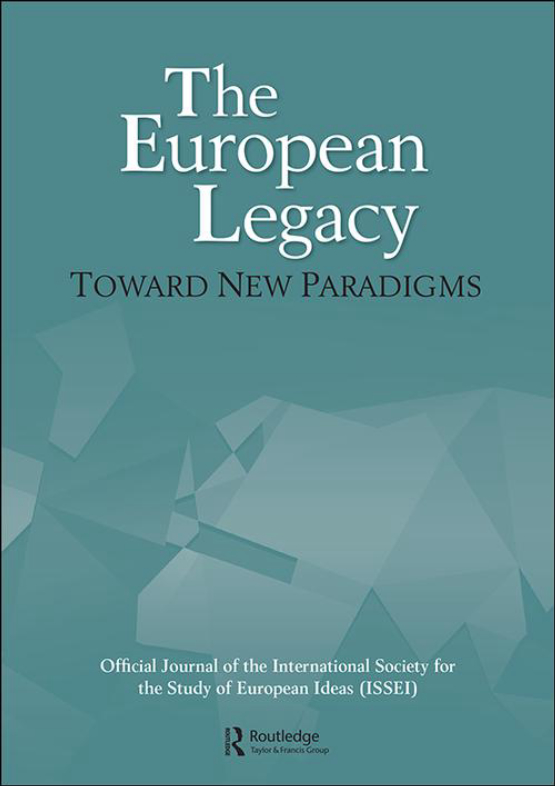Submit a Manuscript to the Journal
The European Legacy
For a Special Issue on
Immigration and European Identity: Negotiating the Boundaries of Belonging
Abstract deadline
Manuscript deadline

Special Issue Editor(s)
Dr. Yaniv Reingewertz,
School of Political Sciences, University of Haifa, Mount Carmel, Haifa, Israel
yanivrein@poli.haifa.ac.il
Immigration and European Identity: Negotiating the Boundaries of Belonging
Over the past decades Europe has been experiencing an unprecedented demographic transformation—as attested by the dramatic expansion of the EU’s foreign-born population—which has reshaped societies from Scandinavia to the Mediterranean. This immigration trend varies significantly by region, with Western and Northern European nations generally hosting substantially larger immigrant communities than their Eastern European counterparts. The countries of origin of the successive waves of migration have also diversified considerably, shifting from primarily intra-European population movement to migration from North Africa, the Middle East, South Asia, and Sub-Saharan Africa. These profound demographic changes have fundamentally altered the social, cultural, and political landscape of European societies, triggering urgent questions about national identity, social cohesion, citizenship rights, and the evolving nature of the nation-state in an increasingly diverse Europe. As traditional notions of European homogeneity give way to multicultural realities, both scholarly discourse and public debate have intensified around questions of belonging and the boundaries of collective identity.
Since immigration has become a major factor in reshaping European societies in the 21st century, it appears to challenge the very idea of what it means to be European. This tension between cosmopolitan ideals and national identity has never been more acute. The 2015-2016 refugee crisis—during which over 1 million people applied for asylum in Europe in a single year—brought these tensions to the forefront of public discourse. The divergent responses to this crisis across Europe revealed deep disagreements about the moral obligations of states, the limits of solidarity, and the relationship between cultural plurality and social cohesion.
As guest editor of this Special Issue, I invite contributions that examine the various dimensions—political, social, economic, philosophical—of both the scope and impacts of immigration on reshaping notions of European identity. I would particularly welcome comparative and interdisciplinary approaches that illuminate the multifaceted nature of European identity in relation to immigration, as well as proposals that offer analyses of the various facets of the problem of immigration that move beyond simplistic accounts of its effects of unmitigated benefits or catastrophic damage on Europe.
Topics may include, but are not limited to:
- Historical patterns of migration and their influence on identity formation in Europe
- Philosophical foundations of national and transnational European identities
- Comparative analyses of integration policies and their outcomes across European states
- Case studies of successful multicultural communities and social cohesion
- The interplay between supranational institutions and national sovereignty in managing migration
- Discursive constructions of belonging and otherness in European contexts
- The role of cultural heritage in negotiating collective identities
- The impact of demographic changes on political institutions and civic participation
- The tension between religious pluralism and secular governance
- Generational differences in attitudes toward immigration and European identity
Submission Instructions
Please send an Abstract (300-500 words) of your proposed paper and a brief bio note to me at: yanivrein@poli.haifa.ac.il
Full length papers should be 8,000-10,000 words in length, including notes and bibliography, and follow The European Legacy’s style guidelines available on the journal’s website. All submissions will undergo double-blind peer review.
Expected Publication Date: December 2026/January 2027

